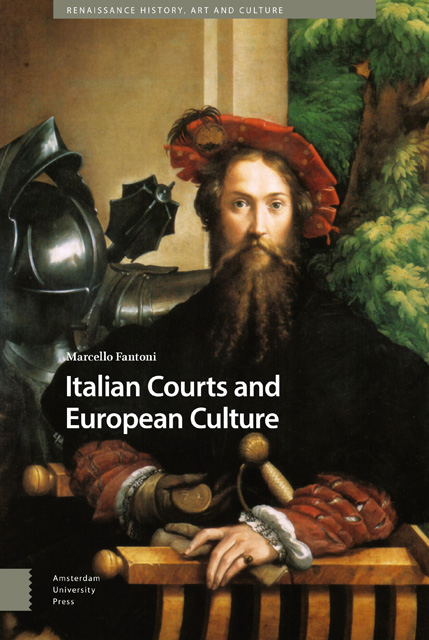Summary
Why write a book on Italian courts? Obviously, I was the first to ask myself this question. What is still left to say that is not already known about courts from the Middle Ages to the Baroque period? I discovered that I had two answers to that question, and – consequently – two reasons for writing this book. The first arose from a realization about what scholarship already existed. Scholars of different nationalities and from various disciplines have used a variety approaches to write about the courts, and their research has grown exponentially in recent decades. Since the mid-1970s, in Italy alone, the study center Europa delle Corti has published more than 150 volumes. There are specialized journals, such as the English-language The Court Historian, and research centers like the Residenzenkommission in Germany or the one hosted by the Chateau de Versailles in France. To which we can add a selection of exhibition catalogues and countless works by art and architecture historians. Literature, too, has been explored in its multiple genres, and so has music and the exuberant universe of pageantry, theater and ceremonial.
Yet, despite this abundance and variety of knowledge, a consolidating theme still seems to be missing – a center of gravity, a unifying theory that could give it all a coherence. In particular, for a long time, the Italian courts were ostracized by historians of the state, who regarded them merely as a hangover from feudalism. This was exacerbated by the tenacious myth of a republicanism that only recognizes the roots of political and cultural modernity in the communal city-states. While those times have more or less passed, it was here that the road came to an end (or led in other directions), which is why, as far as I know, there is currently no alternative reconstruction of the political panorama in Italy between the fourteenth and seventeenth centuries – one that could shape new theories about the country's cultural dimension.
The second (principal) question is a rather daunting one: what contribution did the Italian courts make to Europe? If, indeed, it is true that the courts occupied a significant place in Italian history, then it is inevitable that cultural models were exchanged, albeit in very different ways.
- Type
- Chapter
- Information
- Italian Courts and European Culture , pp. 11 - 14Publisher: Amsterdam University PressPrint publication year: 2022

